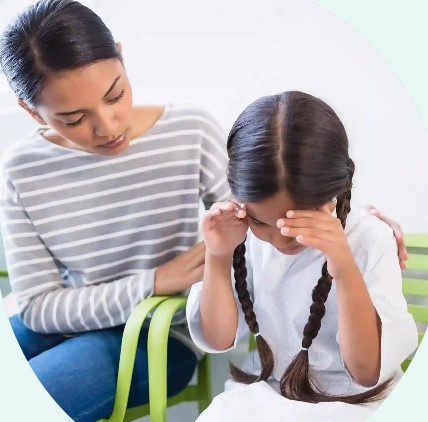


In today’s fast-paced and ever-evolving world, mental health challenges are no longer confined to adults.
Increasingly, even young children are facing emotional struggles that impact their growth, learning, and social relationships. Here’s the shocking part — more than 1 in 10 children globally are affected by depression before they even turn 14
Depression—often dismissed as moodiness or “just a phase” in children—is emerging as a serious concern among parents, educators, and healthcare professionals. Childhood depression is real. And more importantly, it’s treatable—if detected on time.
Here’s the unique insight 💡: Unlike adults, children rarely say “I feel depressed.” Instead, their inner struggles whisper through behaviour — tantrums, tummy aches, school refusal, or constant fatigue.
🎬 Did you know actress and activist Emma Stone battled childhood anxiety and depression? She once shared how drawing helped her manage her emotions at just seven years old. That’s why early detection through tools like a childhood depression screening tool becomes not just important—but essential.
Understanding Depression in Children: More Than Just a ‘Bad Mood’ 💭
Depression in children may not always look like sadness. It can show up in subtle and surprising ways—irritability, frequent meltdowns, withdrawal from friends or activities, falling grades, or even frequent physical complaints like headaches or stomach-aches.
Let’s look at the common symptoms that caregivers should watch out for:
|
Signs & Symptoms |
How It Shows Up in Children |
|
Persistent Sadness |
Prolonged low mood, frequent crying, or appearing gloomy most of the time |
|
Loss of Interest |
Losing interest in play, hobbies, or schoolwork they once enjoyed |
|
Difficulty Concentrating |
Trouble focusing in class, difficulty following instructions, forgetfulness |
|
Low Self-Esteem |
Saying things like “I’m not good enough” or “Nobody likes me” |
Why Early Assessment Matters ✨
Just like catching a fever early prevents it from turning into a severe illness, detecting signs of depression early can prevent long-term emotional distress in children. This is where a childhood depression screening tool plays a critical role. Here are the key benefits of depression assessments for children:
Did you know? 🧠 Children diagnosed and treated for depression before age 12 are 50% less likely to experience recurring episodes in adulthood.
Interesting Fact 🌱: Children who receive early mental health support are 70% more likely to perform better academically and socially in their teenage years.
Why Choose Prism for Your Child’s Emotional Wellness? ✨
When it comes to mental health services, Prism stands out for its child-centric, evidence-based, and compassionate approach. Here’s how Prism’s childhood depression screening tool can make a difference:
✅ Scientifically Validated Tools: Developed by experts, the assessments are designed to accurately evaluate depressive symptoms and emotional challenges.
✅ Personalized Reports: After the assessment, Prism provides clear, easy-to-understand reports highlighting key concerns and recommended steps.
✅ Tailored Interventions: Based on assessment outcomes, Prism offers therapy plans that are suited to your child’s unique needs.
✅ Progress Monitoring: Regular check-ins and updates ensure that the treatment plan remains relevant and effective over time.
✅ Access to Qualified Therapists: Whether you prefer in-person consultations or virtual therapy sessions, Prism’s trained professionals are available when you need them.
If your child has been showing signs of emotional distress, you can visit Prism’s official website and schedule a consultation. Take the first step towards wellness today!
Author Bio – A passionate psychologist and mental health enthusiast with a master’s degree in counselling psychology. I am deeply committed to promoting awareness about the significance of mental and emotional well-being through writing insightful and informative articles.
